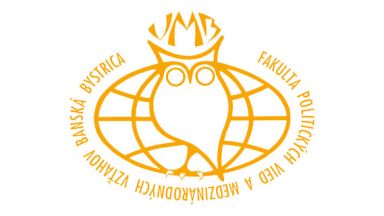Vytvorenie medzikultúrneho občianskeho spoločenstva: jazyková identita vs. jazykové vzdelávanie
DEVELOPING AN INTERCULTURAL CITIZENSHIP COMMUNITY: LANGUAGE IDENTITY VS LANGUAGE EDUCATION
Mei-Lan Huang
***
Politické vedy, Volume 20, Number 4/2017, pages 90-112
Odporúčaná forma citácie článku / Recommended form for quotation of the article:
Huang, M. 2017. Developing an Intercultural Citizenship Community: Language Identity Vs Language Education. In Politické vedy. [online]. Roč. 20, č. 4, 2017. ISSN 1335–2741, s. 90-112. Dostupné na internete: <http://www.politickevedy.fpvmv.umb.sk/archiv-vydani/2017/4-2017/mei-lan-huang.html>.
ABSTRACT
In the past few decades, the study of nation/nationalism has moved rapidly from the periphery to the center of numerous scholarly fields and subfields. But the literature which examines the chronological hegemonic and ideological relationship between mono-culturalism /nation identity and language education with the change in power, in symbolic status of language, is scarce. Therefore, the purpose in this research is to analyse the relationship between the ideology of mono-culturalism and its language education among the histories of interethnic relation in Taiwan.(Objectives)This study was a historical analysis of the issues of the language education and language identity in Taiwan by analysing the data collection from (1) the first-hand accounts of seven key interviewees’ in-depth interviews and (2) documentary data from primary and secondary sources.(Scope) The results demonstrate that the politics of the language education ideology has deep roots in the institutional homogeneous structure of the society, which results in the dilemma of language identity problems in Taiwan. In spite of this, in some context of the evolution of Taiwanese monocultural identity, what the theorist’s paradigm case of (nation-state model) one language per country and one linguistic identity is challenged. So, the case of Taiwan shows both for and against the nation-state theory. (Findings) In general, the research ends by outlining some conclusions, and some implications. That is, the historical case of postcolonial Taiwan can serve as a good heuristic model for examining the histories of interethnic relation in nation identity formation (construction), and language education.(Conclusion)
Key words: language, education, identity, inter-culturalism, mono-culturalism
Súbory na stiahnutie
| Názov | Veľkosť | Formát | Dátum | Zoradiť podľa: |
|---|---|---|---|---|
| Vytvorenie medzikultúrneho občianskeho spoločenstva jazyková identita vs. jazykové vzdelávanie | Veľkosť: 492 kB | Formát: pdf | Dátum: 4.1.2024 |





